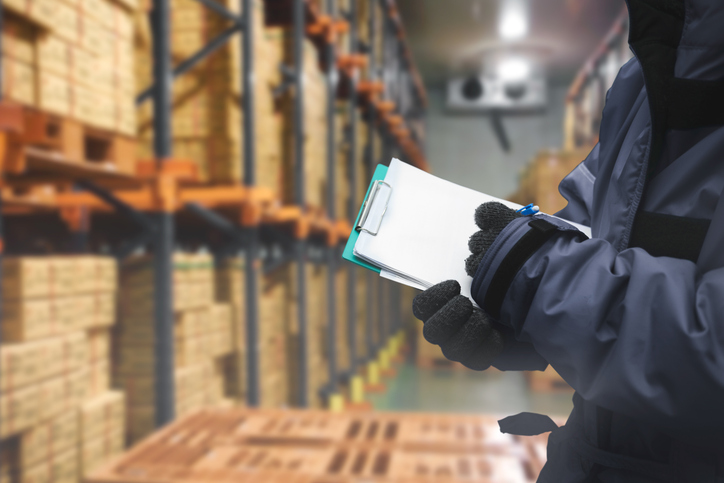Efficient logistics management is crucial for businesses looking to stay competitive and meet customer demands. Among the various aspects of logistics, refrigerated warehousing facilities play a vital role in preserving the quality and integrity of temperature-sensitive products throughout the supply chain. From food and pharmaceuticals to chemicals and biologics, these warehouses work to ensure that perishable goods remain fresh and safe from production to consumption.
Exploring Types of Cold Storage Warehouses
Refrigerated storage facilities also come in various forms to accommodate different warehouse needs and temperature requirements. Here are some types:
Public Warehouses
Third-party facilities that offer refrigerated warehousing solution to multiple businesses on a rental basis. These facilities provide a cost-effective solution for businesses that require cold storage but do not want to invest in their own facilities.
Private Warehouses
Owned and operated by individual businesses, these warehouses provide exclusive storage space for their own products. They provide greater control over storage conditions and customization options.
Plant-Attached Storage
Some manufacturing facilities have refrigerated units attached to their production plants. These units are designed to store products immediately after manufacturing, ensuring freshness and extending shelf life.
The Vital Role of Cold Storage in the Supply Chain
Cold warehousing facilities play a crucial role in preserving the quality and safety of perishable goods throughout the supply chain. In the food industry, it helps extend the shelf life of fruits, vegetables, dairy products, meats, and seafood, reducing food waste and ensuring that consumers receive fresh products.
In the pharmaceutical and healthcare sectors, it is essential to store vaccines, medications, and biological samples at specific temperatures to maintain their efficacy and integrity. Proper storage conditions are critical for preserving the potency of vaccines and ensuring their safe distribution to healthcare facilities.
It also plays a significant role in logistics and distribution, which is essential for preventing spoilage, preserving product quality, and meeting regulatory requirements. Overall, it serves as the backbone of the cold chain, providing the necessary infrastructure to store, transport, and distribute perishable goods safely and efficiently.
Assessing the Need for Cold Storage Solutions
Before investing in refrigerated warehousing solutions, businesses must assess their specific storage requirements and determine the need based on the nature of their products, market demand, and supply chain logistics. This involves identifying temperature-sensitive products in the inventory, analyzing market trends and consumer preferences, and evaluating existing supply chain logistics.
By carefully assessing the need for refrigerated warehousing, businesses can make informed decisions about investing in the right infrastructure to support their operations and supply chain logistics. This ensures that products remain fresh and safe throughout the storage and distribution process, meeting regulatory standards and consumer expectations.
Partnering with a Cold Storage Warehousing Expert
Choosing the right cold storage warehouse partner is crucial for businesses that require specialized facilities for their temperature-sensitive products. Partnering with an experienced provider offers several benefits, including expertise and experience in managing temperature-controlled environments, access to state-of-the-art facilities with advanced refrigeration systems, scalability and flexibility in storage solutions, cost efficiency through shared resources, and risk management to mitigate product spoilage or contamination risks.
When selecting a warehousing partner, businesses should consider factors such as location, storage capacity, temperature control capabilities, track record, and customer service. By choosing the right partner, businesses can streamline their chain operations and ensure the efficient storage and distribution of their products.
Overcoming Challenges in the Cold Storage Industry
Despite their critical role in the supply chain, these types of facilities face various challenges that can impact operational efficiency and product quality. Challenges such as maintaining temperature control, managing inventory effectively, controlling energy costs, ensuring food safety, adapting to market trends, and addressing labor shortages require proactive solutions and investments in technology, best practices, and experienced service providers.
Warehouse providers can enhance operational efficiency, improve product quality, and maintain compliance with regulatory standards. This ensures the reliable and safe storage and distribution of perishable goods throughout the supply chain, meeting the needs of customers and stakeholders alike.
Take Your Supply Chain to New Heights with Visigistics
Partner with Visigistics to explore refrigerated storage solutions that meet your unique needs. Contact us now to optimize your operations and safeguard the quality of your temperature-sensitive products. Rely on Visigistics for dependable solutions that elevate your logistics performance.
Frequently Asked Questions
What is the main purpose of cold storage facility?
The main purpose of a refrigerated warehouse is to preserve perishable goods such as food, pharmaceuticals, and biological samples by maintaining specific temperature conditions. These facilities ensure that products remain fresh and safe for extended periods, reducing waste and maintaining quality throughout the supply chain.
What are the disadvantages of cold storage facilities?
While cold storage facilities offer essential benefits for preserving perishable goods, they also come with certain disadvantages. One drawback is the significant initial investment required to set up and maintain the infrastructure, including specialized equipment and facilities. Additionally, operating costs, such as energy consumption for refrigeration, can be substantial. These kind of facilities also pose challenges for workers, who must follow strict safety protocols to mitigate the risks associated with working in low temperature environments, including the potential for accidents.
How much does it cost to put in a refrigerated warehouse?
The cost of setting up a cold warehouse can vary widely depending on factors such as the square footage of the facility, the level of temperature control required, and the specific storage solutions implemented. For example, setting up a small-scale unit within an existing facility may cost less than constructing a large, ultra-low temperature warehouse from scratch. Additionally, ongoing expenses for maintenance, utilities, and equipment upgrades should be considered when budgeting for operations.
What are the requirements for cold warehouse facilities?
Cold warehouse facilities have specific requirements to ensure the proper storage and preservation of temperature-sensitive products. These requirements include maintaining precise temperature and humidity levels within the facility to prevent spoilage and ensure product quality. Additionally, it must have adequate insulation, ventilation, and refrigeration systems to regulate temperature and airflow effectively. Proper inventory management practices, including rotation and labeling of stored items, are also essential for efficient operation and compliance with regulatory standards.
Is a refrigerated warehouse a good investment?
Investing in a cold warehouse can be a lucrative opportunity for businesses involved in industries such as food, pharmaceuticals, and biotechnology. With the increasing demand for temperature-controlled storage solutions, these facilities offer a reliable revenue stream and a hedge against market fluctuations. By providing essential services for preserving perishable goods, it play a vital role in supply chain logistics and offer long-term growth potential for investors. However, it's crucial to carefully consider factors such as location, market demand, and operational costs when evaluating the viability of cold storage investment opportunities.




